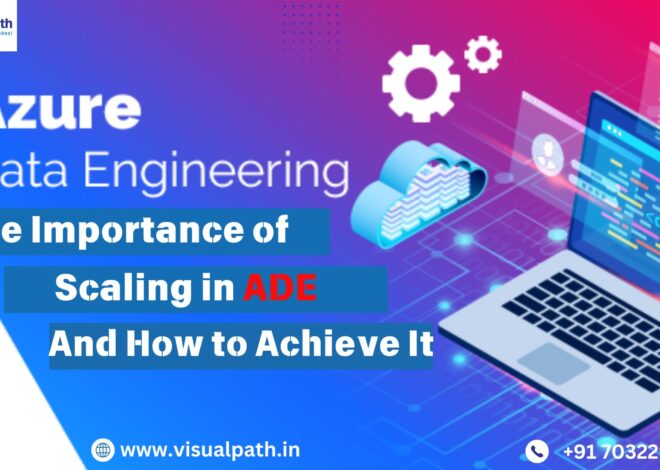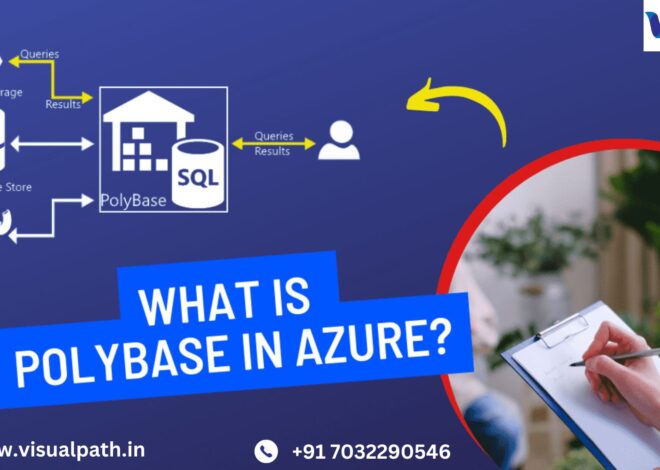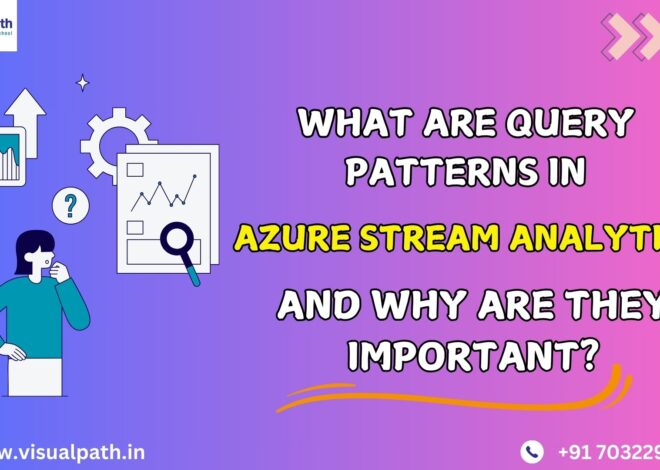
Azure Data Engineering Certification? Azure Data Factory Architecture, Pipeline Creation, and Usage Options
Mastering Azure Data Engineering Certification is critical for organizations to harness the full potential of their data. Earning a can significantly enhance your ability to design, implement, and maintain scalable data solutions. One of the essential components of Microsoft Azure Data Engineer roles is understanding Azure Data Factory (ADF), which enables seamless data integration. This article provides an overview of the Azure Data Factory architecture, pipeline creation, and the various usage options available, along with tips to maximize the value of your Azure Data Engineer training.
Understanding Azure Data Factory Architecture
Azure Data Factory serves as a cloud-based ETL (Extract, Transform, Load) service that allows data engineers to orchestrate and automate data workflows. Its architecture is designed for high scalability and flexibility, making it ideal for managing large volumes of data across various sources. In the context of the Microsoft Azure Data Engineer, understanding the architecture of ADF is critical for implementing robust data pipelines.
The core components of the Azure Data Factory architecture include:
- Pipelines: A set of activities that define the workflow for moving and transforming data.
- Dataflows: These facilitate transformation logic within the pipelines.
- Triggers: They allow automatic execution of pipelines based on events or schedules.
- Integration Runtimes: These provide the computing infrastructure to move and transform data.
A solid grasp of these components, gained through your Azure Data Engineer training, ensures you can design and maintain efficient data workflows that are both cost-effective and scalable.
Pipeline Creation: The Heart of Data Movement
Pipeline creation is the fundamental task in Azure Data Factory and a key focus of the Microsoft Azure Data Engineer role. Each pipeline comprises multiple activities that can either execute sequentially or in parallel, depending on the business requirement. The following steps outline the process of creating a pipeline in Azure Data Factory, which is often covered in Azure Data Engineering Certification programs.
- Define the Data Sources: Start by defining the input datasets, which can come from cloud services (like Azure Blob Storage or Azure SQL Database), on-premises databases, or even external systems.
- Specify the Activities: Activities within a pipeline can include data movement (copy activity), data transformation (mapping data flows), or external services execution (Databricks or stored procedures).
- Set Triggers and Schedules: Automate your pipeline by configuring triggers. These can be time-based (schedule triggers), or event-based, such as file creation in a storage account.
- Monitor and Manage: ADF comes with monitoring tools that enable real-time tracking of pipeline execution. This ensures that any issues can be addressed promptly to avoid workflow disruptions.
Through Azure Data Engineer training, you’ll learn how to configure and fine-tune pipelines to meet complex data processing needs. This hands-on experience is invaluable for real-world applications of the Azure Data Engineering Certification.
Usage Options: Flexibility for Varied Data Scenarios
Azure Data Factory offers a wide range of usage options, making it versatile enough to handle different data integration and transformation tasks. Whether you are working with batch or real-time data, ADF provides multiple methods for moving and processing information, a focus area for any Azure Data Engineer Training.
- Batch Processing: For large datasets, ADF supports batch processing, ideal for periodic data loads such as daily or weekly data integration tasks.
- Real-Time Data Integration: Azure Data Factory can integrate with services like Azure Event Hubs and Azure Stream Analytics to manage real-time data ingestion and processing, a must-have feature in modern data engineering environments.
- Hybrid Data Integration: ADF can connect to both cloud and on-premises data sources, allowing organizations with a hybrid cloud infrastructure to manage data across different environments seamlessly.
- Transformations and Dataflows: Dataflows in ADF enable complex transformations using a visual interface, reducing the need for extensive coding. This is particularly beneficial for individuals undergoing Azure Data Engineer training, as it simplifies learning while maintaining flexibility.
The ability to manage various data movement and transformation scenarios makes ADF an essential tool in the toolkit of a Microsoft Azure Data Engineer. By mastering its usage options during your Azure Data Engineering Certification, you’ll be well-prepared to meet the diverse needs of modern organizations.
Tips for Maximizing Azure Data Factory in Your Role
Here are some tips to help you optimize your use of Azure Data Factory:
Leverage Integration Runtimes: Ensure you select the correct type of integration runtime (Azure, Self-hosted, or Azure-SSIS) to optimize both cost and performance.
Use Parameterization: Parameterize your pipelines to make them more flexible and reusable, reducing duplication of effort.
Monitor Pipeline Performance: Regularly monitor your pipelines to identify bottlenecks and optimize performance, ensuring a more efficient data workflow.
Version Control: Integrate Azure Data Factory with Azure DevOps to manage version control and continuous integration pipelines.
By following these tips, Azure Data Engineer training candidates can maximize the value of ADF, ensuring they are well-prepared for the Microsoft Azure Data Engineer role.
Conclusion
Mastering Azure Data Factory is crucial for obtaining your Azure Data Engineering Certification and advancing your career as a Microsoft Azure Data Engineer. Its architecture, pipeline creation features, and versatile usage options make it a powerful tool for managing and transforming data in both cloud and hybrid environments. Through comprehensive Azure Data Engineer training, professionals can gain the hands-on skills needed to design and implement scalable, efficient data solutions, positioning themselves for success in the ever-evolving world of data engineering.
Visualpath is the Leading and Best Software Online Training Institute in Hyderabad. Avail complete Azure Data Engineer Training Online Worldwide You will get the best course at an affordable cost.
Attend Free Demo
Call on – +91-9989971070
WhatsApp: https://www.whatsapp.com/catalog/919989971070/
Visit us: https://www.visualpath.in/online-azure-data-engineer-course.html



